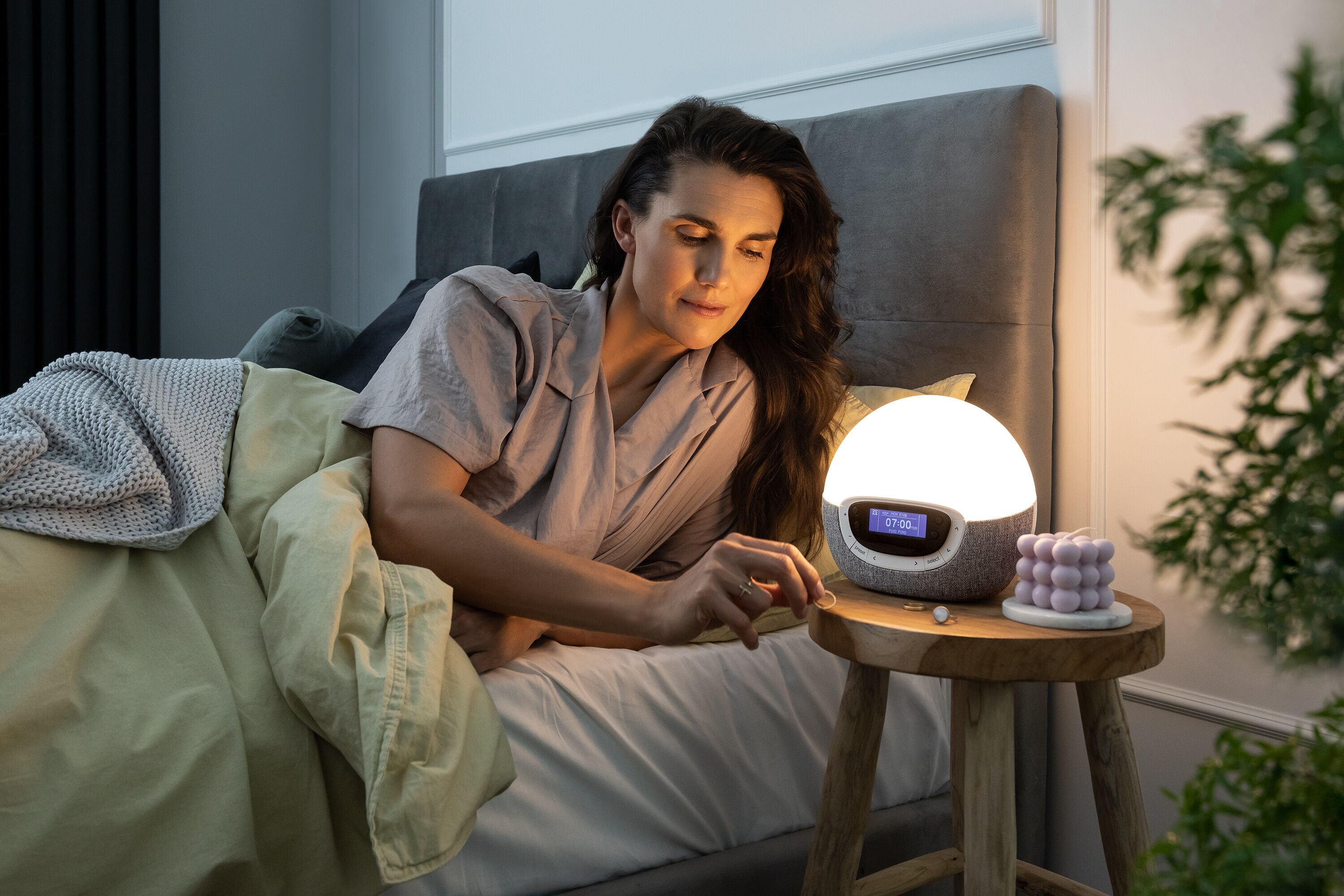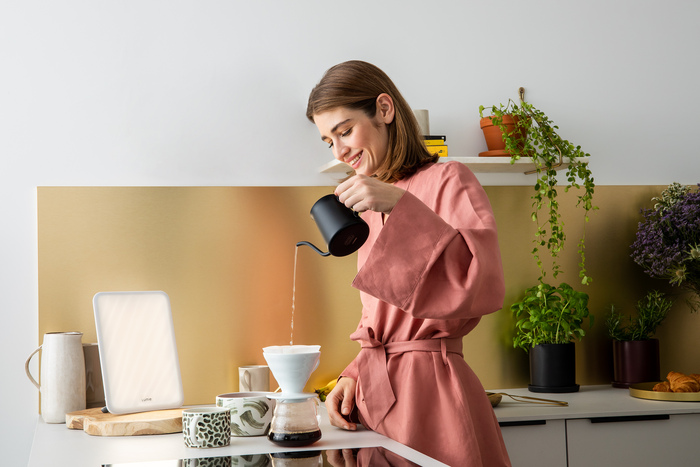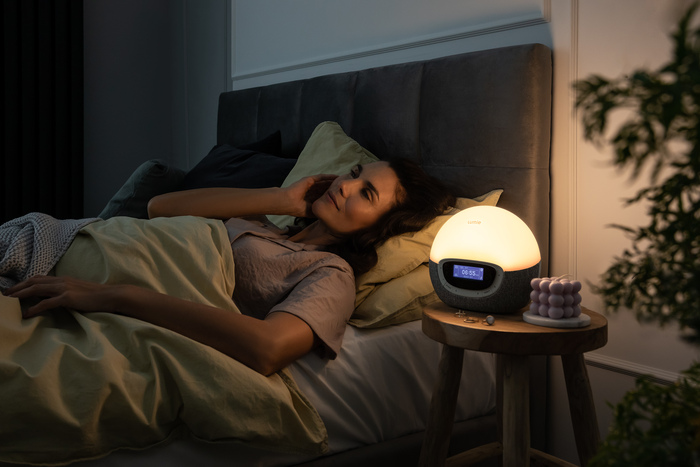What is Circadian Rhythm?

Circadian rhythms are 24-hour cycles in physiology and behavior which are driven by an internal clock. This internal clock, often called the circadian pacemaker, is found in the suprachiasmatic nuclei (SCN for short), in a part of the brain called the hypothalamus. The most obvious example of circadian rhythm is our sleep/wake cycle, but there are in fact rhythms in nearly all aspects of our physiology and behavior including metabolism, the production of certain hormones and our level of alertness. The term 'circadian' derives from the Latin phrase “circa diem,” which means “about a day".
Light is the most powerful synchronizer of our circadian rhythm, which is why they are tied to the rising and setting of the sun. Light exposure to the retina is first relayed to the SCN, the area of the brain responsible for coordinating your body clock (hypothalamus), before descending to your pineal gland (located in the epithalamus). Your pineal gland transduces signals from the sympathetic nervous system into a hormonal signal, which results in the production of hormones such as serotonin (the happy hormone) and melatonin (the sleep hormone). This biological process adjusts the body's circadian rhythm so that the internal and external day coincide.
Circadian rhythms can become inappropriately aligned with our desired sleep/wake schedule, for example during jet lag and night shift work, and this can result in a disrupted sleep pattern and have implications for health, well-being and safety. For example, we know that night shift work is associated with an increased risk of cancer, obesity and diabetes which could be due to the consequences of chronic sleep deprivation or due to performing certain activities at an inappropriate internal time when body systems are not operating optimally e.g. eating a large meal at night when the metabolic pathway is at a low level of activity. Recent work has shown that sleep deprivation can directly influence gene expression involved in metabolism, stress and the circadian clock with all these systems as well as the immune and inflammatory responses being affected.
For the majority of people, the body clock runs at slightly longer than 24 hours and so requires a morning light cue to remain synchronised to local time and ensure good quality sleep at the desired time. In the dark winter mornings, when this cue is absent, it may be beneficial to supplement your clock by using a bright light such as Lumie Vitamin L upon awakening; this will keep your body clock on track and your sleep patterns consistent. Morning bright light could also be beneficial for people who need to push their sleep times earlier, such as extreme late types (owls), teenagers and for commuters who need to wake up early. Extreme early types (larks) who want to push their sleep patterns later in time could use bright light therapy lamps in the early evening to achieve this effect.
A wake-up light such as Lumie Bodyclock can also help regulate our circadian rhythm, with its gradual sunrise during the final 30 or so minutes of our sleep episode providing that daily morning signal to the circadian clock. In addition to the effects on the circadian clock, light can also directly improve our mood and alertness, and so Bodyclock wake-up lights are great at setting us up for the day so that we wake up feeling ready to get up and go.


